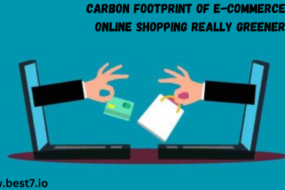
Entrepreneurship is probably the buzzword of the 21st century. Yet, while entrepreneurship is important, small businesses are still the backbone of the economy. This blog will look at the different facts about Startups vs. Small Businesses.
When starting a business, there are a lot of things you need to consider. The ideal scenario would be to start a small business that grows into a big startup; success is the only goal. However, in reality, the two are miles apart. A startup requires a lot of money to start and a lot of work to grow compared to a small business. The culture, job roles, and employee benefits are also very different. Here we take a look at the similarities and differences and learn about the benefits of each.
From tech to non-tech, from food to fashion, from mobile apps to online businesses, there is a big chance that your idea is not that unique. Being in a startup also seems to have a lot of perks, with the media glorifying them, but running a business of your own has its fair share of challenges.
What is a Startup?
The word “startup” has become synonymous with tech companies, but can refer to any type of company, including non-tech businesses. Entrepreneurs often find startups with a vision for their business but generally lack resources and experience. This makes startups particularly vulnerable to failure but also provides them with the potential to increase. Startups need to deeply understand their customers and the problem they are trying to solve as primary goal of startups is to care about people & their problems. They also need to execute quickly and efficiently to get their product or service to market before their competitors.
While there is no single formula for startup success, there are a few key ingredients that all successful startups have in common. These include a great team, a strong work ethic, a clear vision, and a willingness to take risks.
What is a Small Business?
A small business is a privately owned and operated company with a small number of employees. These businesses are typically characterized by a close-knit group of employees who work together to achieve common goals. Small businesses often have a close relationship with their local community, and they may be involved in charitable work or other civic activities. Many small businesses are family-owned and operated, and they may have been in business for generations.
Differences between Startup and Small Business
There are a few key ways a startup differs from a small business. First, startups are typically characterized by innovative products or services, often developed in response to an identified market need. In contrast, small companies may offer more traditional products or services that are not as cutting-edge or unique. Second, startups are often founded by entrepreneurs who are passionate about their idea and are willing to take on significant risks to bring them to fruition. In contrast, small businesses are often started by more risk-averse individuals who are more focused on stability and profitability. Finally, startups typically have a much shorter timeline than small businesses to achieve profitability and scale. This is because startups often operate with limited resources and need to generate revenue quickly to sustain their business.
Advantages and Disadvantages of both for Entrepreneurs
There are many advantages and disadvantages of starting a startup or small business for entrepreneurs. Some of the advantages include having more control over one’s own business, being able to be more innovative and creative, and having the potential to make a lot of money. Some of the disadvantages include the high risk of failure, the long hours, and the need to constantly be sales and marketing.
Overall, starting a startup or small business can be a great opportunity for entrepreneurs, but it is important to be aware of the risks and challenges involved.
Challenges of running a small business or startup
Many challenges come with running a small business or startup. One of the biggest challenges is getting the word out about your business and attracting customers. This can be difficult and costly, especially if you start from scratch. Another challenge is keeping your costs down and making a profit. This can be difficult if you are not careful with your expenses and do not have a lot of revenue coming in. Finally, another challenge is dealing with employee issues. This can be anything from managing payroll to dealing with conflict in the workplace. If not handled properly, these issues can quickly spiral out of control and lead to stress and headaches for the business owner.
Conclusion:
The difference between a startup and a small business is more significant than most people think. As a future entrepreneur, it’s important to ask yourself which one you are before you launch your company. That way, you can better prepare to set goals, acquire funding, and create a plan for the future of your business.












